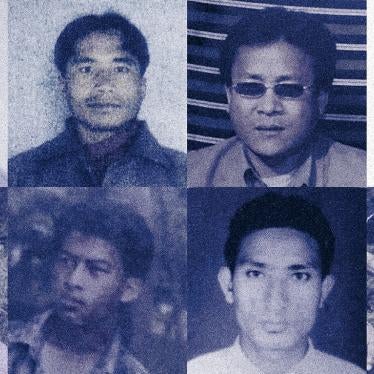This week the Chinese government finally made public its second version of a draft law regulating foreign funding for nongovernmental organizations (NGOs). The news isn’t good: while there are some minor technical improvements from the first version, the government’s core goal of significantly tightening control over civil society remains chillingly clear.
The new draft retains a ban on foreign-funded NGOs establishing “branch offices” in China, though it adds an exception for those with permission from the State Council – China’s chief administrative authority – to do so. Which NGOs will be allowed, or how these decisions will be made, remains unclear. But it’s a safe bet the government will grant permission to groups it finds unthreatening while denying it to those it dislikes.
The draft law now stipulates punishments for organizations that “subvert state power” or “incite resistance against enforcement of state law or administrative regulation.” These are in addition to prohibitions against “undermining ethnic harmony or engaging in separatism” and “being involved in or funding political activities; being illegally involved in or funding religious activities” – all charges commonly brought against peaceful activists and critics of the government.
The proposed law will make it much more difficult for foreign funders, who have been instrumental in supporting independent groups in China, to continue such support. The Ministry of Public Security, not the Ministry of Civil Affairs, will supervise and approve registration of foreign NGOs – in essence, giving China’s police veto power over international groups and their decisions.
Given the authorities’ naked hostility towards Chinese civil society, particularly under President Xi Jinping, this law is clearly part and parcel of a larger effort to limit, not facilitate, the work of independent organizations.
The signs for outspoken NGOs are not promising. In October 2014, Beijing police detained Guo Yushan, head of prominent think-tank Transition Institute. This March, police detained five women’s rights activists with close ties to the anti-discrimination NGO Yirenping. Since the women’s release in mid-April, the group continues to be subjected to police harassment.
Unless foreign funders take immediate action to find ways of ensuring support to these groups, they may soon find few partners left to work with who fulfill independent mandates, rather than the government’s. All those who support the success of independent civil society in China should urge Beijing to drop the law.









